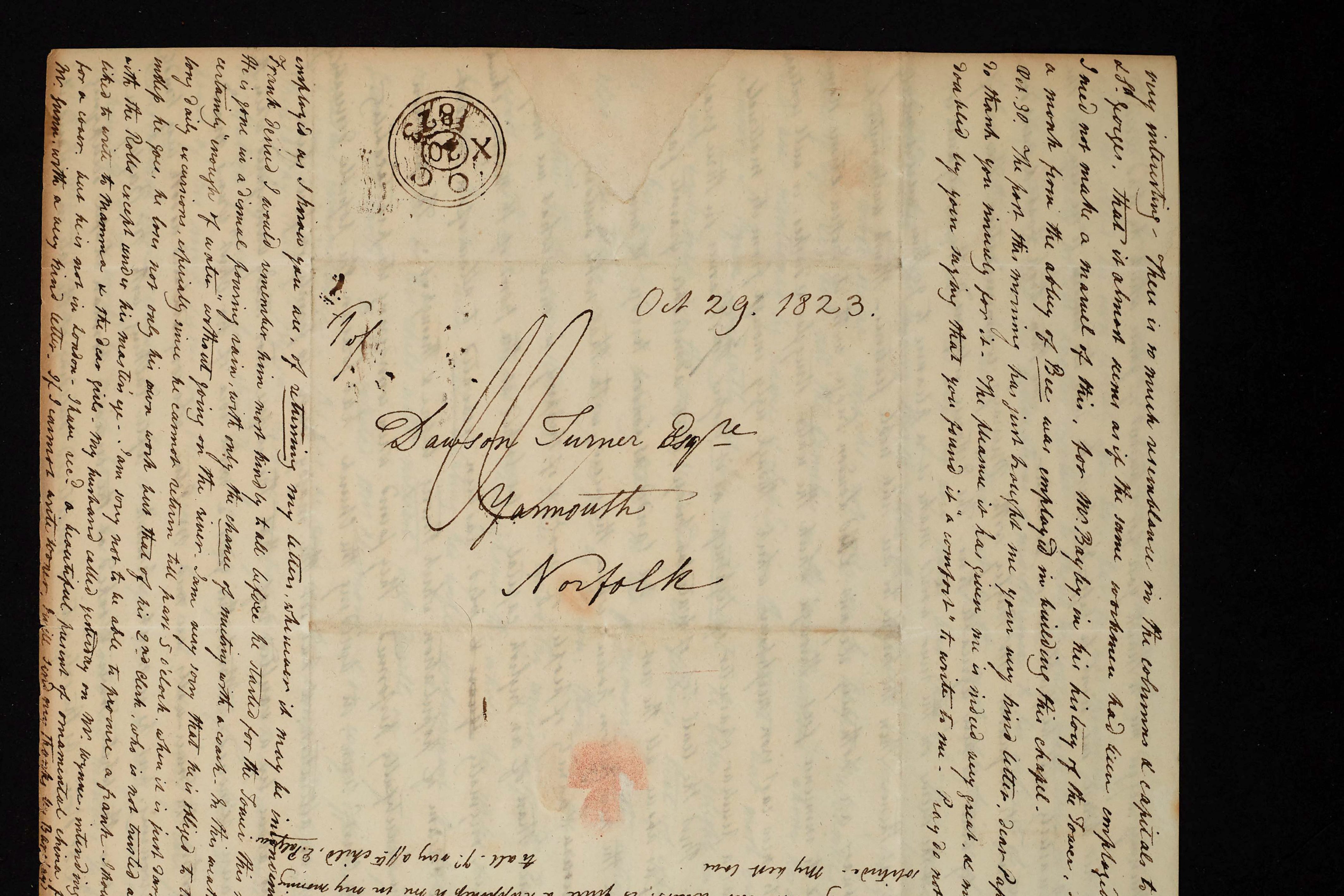‘Truly exciting’ letter about Lord Byron’s memoirs found at Cambridge college
The letter, from Elizabeth Palgrave, was discovered in Trinity College’s Wren Library.

Your support helps us to tell the story
From reproductive rights to climate change to Big Tech, The Independent is on the ground when the story is developing. Whether it's investigating the financials of Elon Musk's pro-Trump PAC or producing our latest documentary, 'The A Word', which shines a light on the American women fighting for reproductive rights, we know how important it is to parse out the facts from the messaging.
At such a critical moment in US history, we need reporters on the ground. Your donation allows us to keep sending journalists to speak to both sides of the story.
The Independent is trusted by Americans across the entire political spectrum. And unlike many other quality news outlets, we choose not to lock Americans out of our reporting and analysis with paywalls. We believe quality journalism should be available to everyone, paid for by those who can afford it.
Your support makes all the difference.A letter describing Lord Byron’s memoirs, which were burned at the office of his publisher following his death, has been discovered at a University of Cambridge college.
The poet, who was 36 when he died in 1824, had left the manuscript with instructions to publish only after his death but it was destroyed amid fears of damage to his reputation.
The letter, from Elizabeth Palgrave, was discovered in Trinity College’s Wren Library by archivist Adam Green, who was cataloguing the Dawson Turner archive.
Ms Palgrave writes, in the 1823 letter to her father, the banker Dawson Turner, that she saw the memoirs on a visit to the publishing house of John Murray.
“I opened the pages accidentally at that part of his Lordship’s life which mentions his marriage (to Anne Milbanke), and I read it with the utmost interest and avidity,” she wrote.
“Lord Byron prefaces this portion of his manuscript by professing his design of hurrying over it, as it is of all the most painful to record.
“He then, in the most cold-blooded and heartless manner, declares his little attachment to his wife at any time…
“It is grievous to read his declaration of indifference to his wife and of aversion to her mother, whom he never mentions but by the most opprobrious epithets.
“Nor does he ever call his wife by any name but that of ‘Miss Milbanke’.”
She wrote that Byron’s memoirs “contain the most severe remarks, not only on (his father-in-law) Sir Ralph Milbanke’s family, mode of life – but all the families in the neighbourhood whom his Lordship met, are mentioned by name and classed in the wittiest but most cruel manner”.
Ms Palgrave continued: “Lord Byron evidently set his mind to evil – he takes delight in recording his own wickedness, and in the most perverted of all feelings – that of exposing and degrading his wife.
“A leading trait in his memoirs is the extreme pleasure he takes in levelling, as far as he can, those who are eminent for virtue to his own standard.”
Cambridge scholar Dr Corin Throsby said the discovery of the letter was “truly exciting”.
“For centuries people have wondered what Byron’s lost memoirs might have contained, so it is truly exciting to have another first-hand account from someone who read them,” she said.
“Byron was always out to shock, and he would have been unsurprised and possibly delighted by Elizabeth’s extreme reaction to his work.
“Her letter shows the success of Byron’s ‘bad boy’ persona as she is not only disturbed but also clearly fascinated by him, repeatedly imagining how he was feeling while writing.
“In this way, the letter offers a window into how Byron was read in his time and demonstrates the lost memoir’s apparent ability to simultaneously scandalise and captivate its readers’ imagination.”
Byron was a student at Trinity College between 1805 and 1807.
Trinity College archivist Adam Green, who discovered the letter, said: “This fascinating detail is typical of Elizabeth Palgrave’s letters, which burst with intelligence and information.
“It’s typical too of the discoveries waiting to be made in the many relatively unexplored collections of letters – particularly those of women – in this library and elsewhere.”